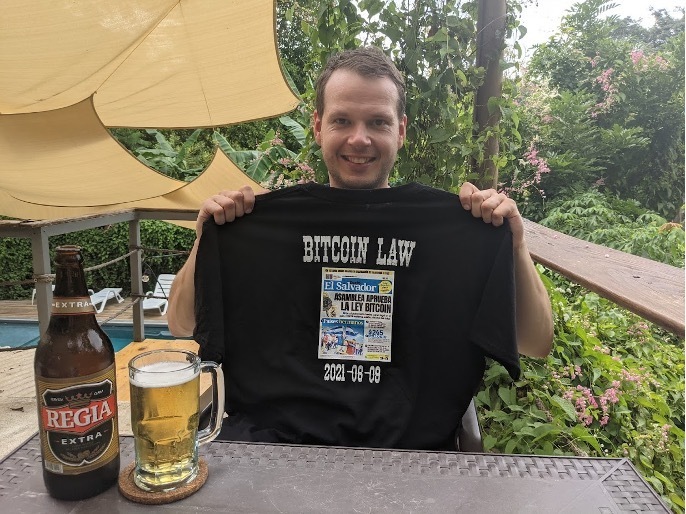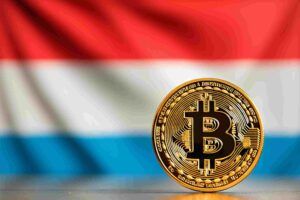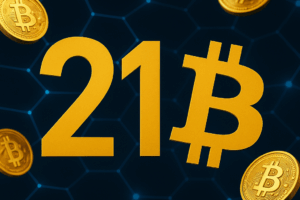On June 09, 2021, President Nayib Bukele brought the “Ley Bitcoin” through the parliament of El Salvador. A law that makes El Salvador the first country in the world on September 07, 2021 to officially introduce Bitcoin as a national currency and is therefore, in addition to the American dollar, considered legal tender.
Review: El Salvador relies on Bitcoin as legal tender
After Bitcoin has already gained more and more recognition worldwide in one of the three primary money functions, that of the store of value, this advance gives a major boost to the second function – that of the medium of exchange – less than 13 years after the Genesis Block.
This probably historically unique opportunity was for me as a fascinated observer and companion of Bitcoin over the years to seize the opportunity and make a detour to El Salvador as part of my summer vacation.
The most important questions I wanted to clarify during my stay were
- How do Salvadorians feel about Bitcoin?
- How widespread is Bitcoin as a means of payment already?
- How do merchants implement the acceptance of Bitcoin as a means of payment?
- How do they deal with the volatility of Bitcoin?
First Points of Contact with Bitcoin as Legal Tender
Arriving at the airport in San Salvador, the first necessary transaction was already on the agenda. For my wife, who comes from Mexico, an entry fee of $12 was due. Arriving at the counter, I asked directly whether it was already possible to pay this in Bitcoin. With a smile on his face, the employee explained to me that this was not possible and that he had not yet heard that this should be possible from September 7th. After I then handed him a $20 bill, he asked me if I didn’t have the amount right. I replied that I unfortunately didn’t have that and that this would not be a problem with a Bitcoin payment 😊
Then we took a taxi to El Zonte, a small surfer beach village, which has gained worldwide fame over the last two years due to the Bitcoin Beach project based there. After an anonymous Bitcoin donation, Salvadorians based there, together with a Bitcoin-enthusiastic surfer from the USA, Mike Peterson, have built a Bitcoin ecosystem on site for more than two years in which over 500 families have learned on a daily basis what Bitcoin is and how to use it as a store of value and means of payment, which is accepted by a large part of the local merchants. With the local “Bitcoin Beach” app, which was created by the project, participants can exchange Bitcoin in the form of Satoshis with each other by either entering a known username or scanning a QR code, as we already know from other applications. The amounts that you want to send can either be specified in Satoshi or in USD, whereby in the latter the amount in Satoshi is calculated ad-hoc and charged accordingly in a transaction. The special thing about the app is that it is a Lightning Wallet, i.e. the transactions that are initiated by the app are not confirmed on-chain and therefore have to wait more than 10 minutes until they are finalized, but they are confirmed instantly, after a few seconds on the Layer-2 solution, as we are used to from contactless payment with a credit card or from Pay Apps. The big difference, however, is that the money you receive in this way is immediately available again to spend it on something else, which is not always the case for merchants in the case of credit card payments, as it can take several days for the amounts to arrive on the merchant’s bank account, taking fees into account. In addition, a map is visible on the app, on which you can easily see which shops nearby accept Bitcoin as a means of payment.
With the taxi driver Don Francisco, who was actually a pastor of a community with more than 100,000 members, I then got into a deep conversation to learn about the history of El Salvador. The introduction of the US dollar as the national currency 20 years ago, the 3 years it took to replace the own currency, the Colón, as a result. The inflation prevailing despite the introduction of the US dollar over time and the new government of Nayib Bukele, which for the first time in the history of El Salvador does not come from the extreme left (FMLN) nor the extreme right (ARENA). How they tried to get the smaller shops back on their feet with free support during the Covid-19 recession and invested a lot of money to decimate violence and crime in the country.
Fascinatingly, I had to realize that this country, which is characterized by very hard times of the civil war in the 1980s together with other states in Central America, is at the point of trying to take a completely new direction. With a president who has managed to gain the upper hand in all three organs of government with his party “Nuevas Ideas” after less than two years in office. In the sense of democracy and the separation of powers to prevent the concentration of power, this may not give the optimal picture, but in order to get real sustainable changes enforced, such a jolt is probably essential. The future will show.
In Don Francisco’s community, there are nationally known people in the opposition who criticize President Bukele’s work in a healthy way. Among other things, it is criticized, for example, that his close relatives are responsible for leading the national Bitcoin Fund to the liquid exchange of US dollars and the introduction of Bitcoin ATMs distributed throughout the country. Both in their entirety very lucrative business areas.
El Zonte – the Bitcoin Beach of El Salvador
Arriving at the Hotel Palo Verde, my exploration continued. The hotel in the middle of El Zonte does not yet accept Bitcoin as a means of payment, but this is planned for the future. Very interesting conversations then arose with the hotel staff. While some have not dealt with the topic of Bitcoin at all, there were a few who have already gained experience. René in his early 20s set up his phone for his father, who is a small farmer, so that he could receive the Bitcoin donation as a merchant and explained to him how to use it to make and receive payments. René learned this from the Bitcoin Beach project, where he regularly attends training events several times a week. In addition to Bitcoin, normal topics such as mathematics, English lessons, computer science and also finance are freely accessible to Salvadorians. Santos, also in his early 20s, does not use Bitcoin to pay, but keeps it as a piggy bank.
After these conversations in the hotel, I wanted to explore the small town the next day to see how far Bitcoinization has progressed and also make a detour to the headquarters of Bitcoin Beach, the “Hope House”. Within a walk of no more than 30 minutes, you have walked the village well. Bitcoin signs and QR codes are attached to numerous shops and a few restaurants to signal acceptance. I myself was then able to make payments completely uncomplicated several times to pay for cool drinks or my “Bitcoin Law” T-shirt, either by scanning the QR code or using the username that is recognized by the Bitcoin Beach app. Larger restaurants had not yet implemented Bitcoin as a means of payment and, when asked, this did not seem to be on the agenda yet.

Arriving at the “Hope House”, I was able to have a longer conversation with Salim Artuega, one of the employees in the Bitcoin Beach project. He gave me a good overview of the development of the project, the current status and what is planned for the future. Over 20 projects that have been launched to bring the topic of Bitcoin closer to the 500 families in El Zonte and neighboring villages and to offer educational programs far beyond are underway with great energy. In addition, investments are being made in infrastructure, built, so that more than 100 people are employed there, with the majority of them being construction workers. The great achievement that Roman Martinez, one of the main faces, has already achieved is that people can have a dream again, to achieve something in life. The best example of this was a 9-year-old who, according to Salim, has already earned over $120 in Bitcoin through his smaller jobs for the project over time and is not thinking of spending it.
All employees are paid weekly, either in US dollars or in Bitcoin. Interestingly, over time, more and more employees have decided to receive their salary in Bitcoin. On my way back to the hotel, I was able to speak briefly with a construction worker who confirmed that he receives his salary in Bitcoin.
On the other hand, I also spoke briefly with a police officer whom I met on the way. He had not yet dealt with the topic and has not yet heard that it would be a topic for him in the future.
San Salvador – Bitcoin Capital of the Future?
The next day, a trip to the capital San Salvador was on the agenda. In addition to the local sights, I wanted to get to know the president’s motives for introducing the Bitcoin Act better. Unfortunately, after several unsuccessful attempts to call the official government hotline, I could not find out whether there was a public appearance of the president on that day.
On the drive, Daniel, our young driver and tour guide from El Zonte, explained to me that Bukele is the first president who does not stay in the state presidential seat in the center of the city, but in his private residence with his wife and young daughter. The way to the city happened to lead us past which one could easily determine due to the comprehensive presence of armed security personnel. There is much speculation about the motives, to preserve the independence of his decisions, to avoid espionage and revolts against him and his party, etc. According to his own statements, it serves as a cost-saving measure to avoid the high costs of the state residence, also to be able to launch a completely new hospital during the coronavirus crisis.
Arriving in the vibrant capital, we first went to the Palacio Nacional, which nowadays serves to receive state guests as well as mainly as a museum on the history of El Salvador, especially to commemorate the civil war times. The young museum guide, who was also a student, told me when asked if she had already dealt with the topic of Bitcoin that she had not yet familiarized herself with it and that she is very concerned that many, especially older people in El Salvador, would not be able to cope with the topic.
Later in the day in the restaurant and in individual shops to buy souvenirs, Bitcoin was then also not an issue.
Before going back to El Zonte, we made a detour to the Boquerón, one of the many volcanoes in El Salvador. I was able to get a small impression of what the president intends to do in the future to use the geothermal energy from the volcanoes to mine Bitcoin. The energy-rich atmosphere that the volcano radiated alone gives hope that these natural resources can contribute to mitigating the narrative of Bitcoin’s energy waste in the future.
Back at the hotel in the evening, Daniel explained to me that he himself has been accepting Bitcoin as a means of payment for years via his Lightning “Wallet of Satoshi”, but his boss does not yet, whom he then pays in US dollars from his private cash.
Dealing with the Volatility of Bitcoin
The last topic I wanted to dedicate myself to on the last day before departure was the handling of the high volatility of Bitcoin by Salvadorians. As we can easily imagine, as long as the adoption of Bitcoin is still moving in such a minimal percentage of the world’s population, a digital currency that can be traded 24 hours a day, 365 days a year worldwide on countless markets is still subject to considerable volatility.
A pupusa (tortilla with baked filling and a national dish in El Salvador), which costs 2 to 3 US dollars, can be subject to a 20-30% fluctuation in value for the seller within a week after receipt in Bitcoin. It is clear that as long as the value development of Bitcoin is positive, there is no one who gets upset about it. However, in situations such as we experienced in mid-May this year, in which Bitcoin suffered a loss of around 40% within a week, this cannot simply pass anyone by.
At this point, I then had a longer conversation with Roman Martínez, one of the OGs of the Bitcoin Beach project. He made it clear to me that the people in El Zonte and the surrounding area have become very familiar with the volatility of Bitcoin over the years. They see the risk but also the opportunity in it. Should it be necessary to divert part of the Bitcoin received to less fluctuation, then there is now the Strike App as a solution. This app developed by Jack Mallers from the USA allows users to scan a QR code and set an amount, which is then loaded onto the Strike App as dollars using the Lightning network. Just as quickly and conveniently as it is about payments in Satoshi. This gives Salvadorians the opportunity to hold part of their assets and income in Bitcoin and part in US dollars, each as he or she deems adequate for his or her personal risk perception. In addition, this app covers the huge application of remittances from the diaspora, which, according to the World Bank, account for almost a fifth of El Salvador’s gross domestic product.
It’s nice to have your digital dollars on an app, but so far in El Salvador cash is king. For this, I was explained, there are already now, in addition to the Hope House of the Bitcoin Beach project, a few so-called cash points, which allow to exchange digital dollars on the Strike App, or Satoshis on a Bitcoin Wallet into cash. After a phone call with Orlando, a young employee of the Strike team in El Salvador, I understood that Jack Mallers has made a deal with the president to develop the entire commercial market of El Salvador in order to expand the Strike network and associated cash points on a large scale. In the future, Salvadorians should not only have the opportunity to pay in Bitcoin at any gas station or larger supermarket, but also to convert digital dollars or Bitcoin into Fiat dollars.
In addition, there is the possibility to buy or sell Bitcoin for US dollars at so-called “Bitcoin ATMs”. In El Zonte and El Tunco there are already such ATMs, but unfortunately they do not always work, depending on the use of a Bitcoin or Lightning Wallet, they take an average of 10 to 20 minutes to issue US dollars and are associated with considerable fees. Here is an example in the following video:
You are currently seeing a placeholder content of YouTube. To access the actual content, click on the button below. Please note that data will be passed on to third-party providers.
This is of course still better than using the local providers of international money transfers such as Moneygram or Western Union, which, in addition to high fees, also take a considerable amount of time from sender and recipient to effectively send money, but definitely not optimal.
In the future, Bukele plans to equip the entire country with Bitcoin ATMs (I have heard several versions of this with different companies that were commissioned from the USA by one of Bukele’s brothers). Hopefully, these would be ATMs based directly on the Lightning Network, so that it doesn’t take so long for Salvadorians to get their dollars.
Conclusion to My Vacation in El Salvador
Overall, I found that the community in the surfing village of El Zonte has already gained a lot of experience and knowledge with Bitcoin as a store of value and means of payment due to the Bitcoin Beach project. This does not seem to be the case in the rest of the country. The state-sponsored Chivo Wallet, which promises every Salvadoran $30 in Bitcoin after entering their DUI (Documento Único de Identidad) in the app, is intended to greatly advance acceptance on the part of Bukele. Whether this will succeed and how long it will take compared to the abolition of the Colón as the national currency remains a question for the future.
Details on the Bitcoin support program of the government in El Salvador
70% of Salvadorians do not have a bank account with e-banking, debit or credit card, and the introduction of Bitcoin and the associated digital payments will bring about a major change in society. People are generally afraid of such changes, and this will be a major challenge especially for the older part of the population. It is up to every Salvadoran who is familiar with the topic to educate his fellow citizens. It is clear that what has already been achieved is, in my opinion, significant, and I will certainly not be the last interested party to make his way to El Salvador because of the Bitcoin law.
What I find a bit of a pity is that, according to the Bitcoin Beach staff, there has been no contact with the president to incorporate the knowledge that the team has gained over the years in dealing with the topic and in educating the families into the nationwide strategy for implementing Bitcoin as a means of payment but also as a store of value.
The point that I found most impressive overall was the statement in the conversation with Roman: Bitcoin has brought about a lot of positive change. However, the most important thing of all is that he hears from his fellow citizens that for the first time in many years they have the feeling of being able to dream again. Of a better future with opportunities for themselves and their families that they have not had at all so far. This statement alone was worth taking this trip for me.
My last “good” deed before departure should then be, after arriving at the airport, to download the Bitcoin Beach app onto Don Francisco’s phone, explain the basic functionality to him, and send him my tip directly to his new app via QR code.
I will keep in touch with him to find out to what extent he has taken up the matter. 😊
More insights and background on Bitcoin and cryptocurrencies



